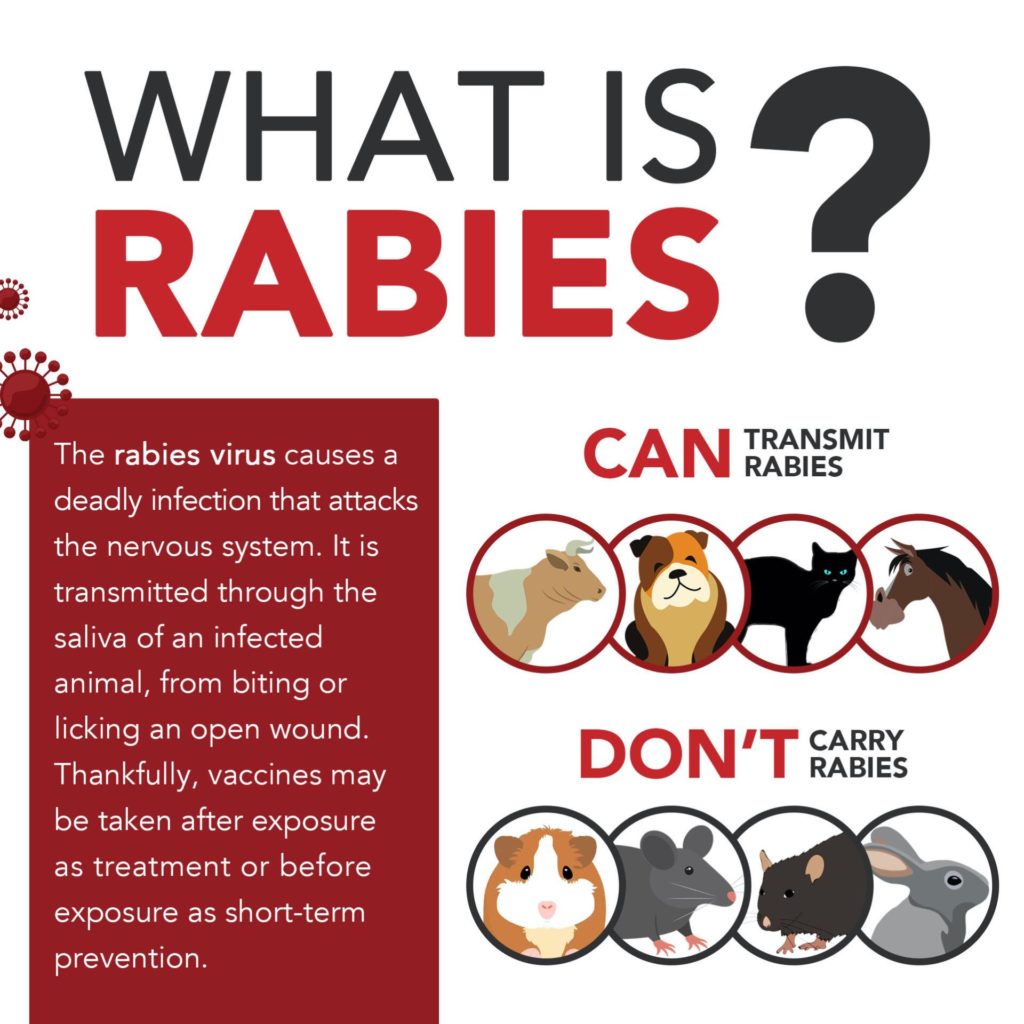"Whenever a person is bitten by a dog or other mammal, report of such bite shall be made within 24 hours to the Health Commissioner of the district in which the bite occured." OAC 3701-3-28

What to do if I am bitten by an animal?
- Thoroughly clean the area with soap and water and cover with a clean dressing or bandage.
- Immediately seek medical care with your family doctor, urgent care or emergency room.
- Many bites are wounds that can easily become infected if not cared for properly.
- Try to get information about the animal’s owner including name, address and telephone number.
- Try to get information about the biting animal such as the type of animal, color, breed and name.
- Make sure that your healthcare provider reports the animal bite to the CCCHD.
How do I report a bite?
Please contact CCCHD at (937) 717-2451 #3 to file a report or click Animal Bite Report and email it to environmental@ccchd.com
What does CCCHD do after the bite is reported?
According to Ohio Revised Code 3701-3-29, CCCHD is required to quarantine all dogs, cats and ferrets that bite people.
The quarantine is for at least 10 days and is usually done at the animal owner’s home. The quarantine helps make sure the biting animal doesn’t have rabies. If the animal had rabies when it bit, the symptoms would be seen when the animal is observed by CCCHD after the 10 days.
What is rabies?
Rabies is a deadly viral disease that attacks the nervous system (brain, spinal cord, and nerves). Rabies can infect all mammals and is mostly seen in bats, skunks, raccoons, and other wild animals. However, dogs, cats, and even humans can also be infected.
Each year in Ohio, rabies is found in approximately 30 mostly wild animals. Rabies infects very few humans in the United States.
We can prevent rabies by:
- Ensure that all pets are up-to-date on rabies
vaccinations. - Do not feed, pet, adopt, or attempt to move wild
or stray animals. - Reduce uninvited wildlife guests by feeding your pets indoors, tightly cover your trash bins, and bat-proof your home.
- If you see a sick or injured animal, do not touch it. Call your local animal control office.
- Call your doctor if you or a family member is
bitten. Call a veterinarian if your pet fought with
a wild animal or was bitten by another animal.

How is rabies spread?
Rabies is spread through the saliva or an infected animal to another animal or human. This usually happens when a bite breaks the skin or the animal’s saliva gets into an open scratch or wound. It has been spread by saliva getting into eyes, nose or mouth, but this is very rare.
What animals can have rabies?

In Ohio, the most common animals to have rabies are bats, skunks, raccoons, foxes and coyotes. Bats are the ONLY animal to test positive for rabies in Clark County since 2006. According to the Ohio Department of Health, the last domestic animal to test positive for rabies was a cat in 2022 in Mahoning County.
Bats are the leading cause of rabies deaths in people in the United States and the only animal since 2006 to test positive for rabies in Clark County. You cannot tell if a bat has rabies just by looking at it and rabies can only be confirmed in a laboratory.
Examples of situations where there is a possibility of rabies exposure:
- Bat found in a room with a sleeping person
- Bat found near an unattended child who is not able to describe what happened
- Bat found in a room with an individual under the influence of alcohol or drugs or with other sensory or mental impairment
For more information on bat encounters and determining rabies risk, click here to view the Ohio Department of Health document entitled Managing Bat Encounters and Rabies Risk.
